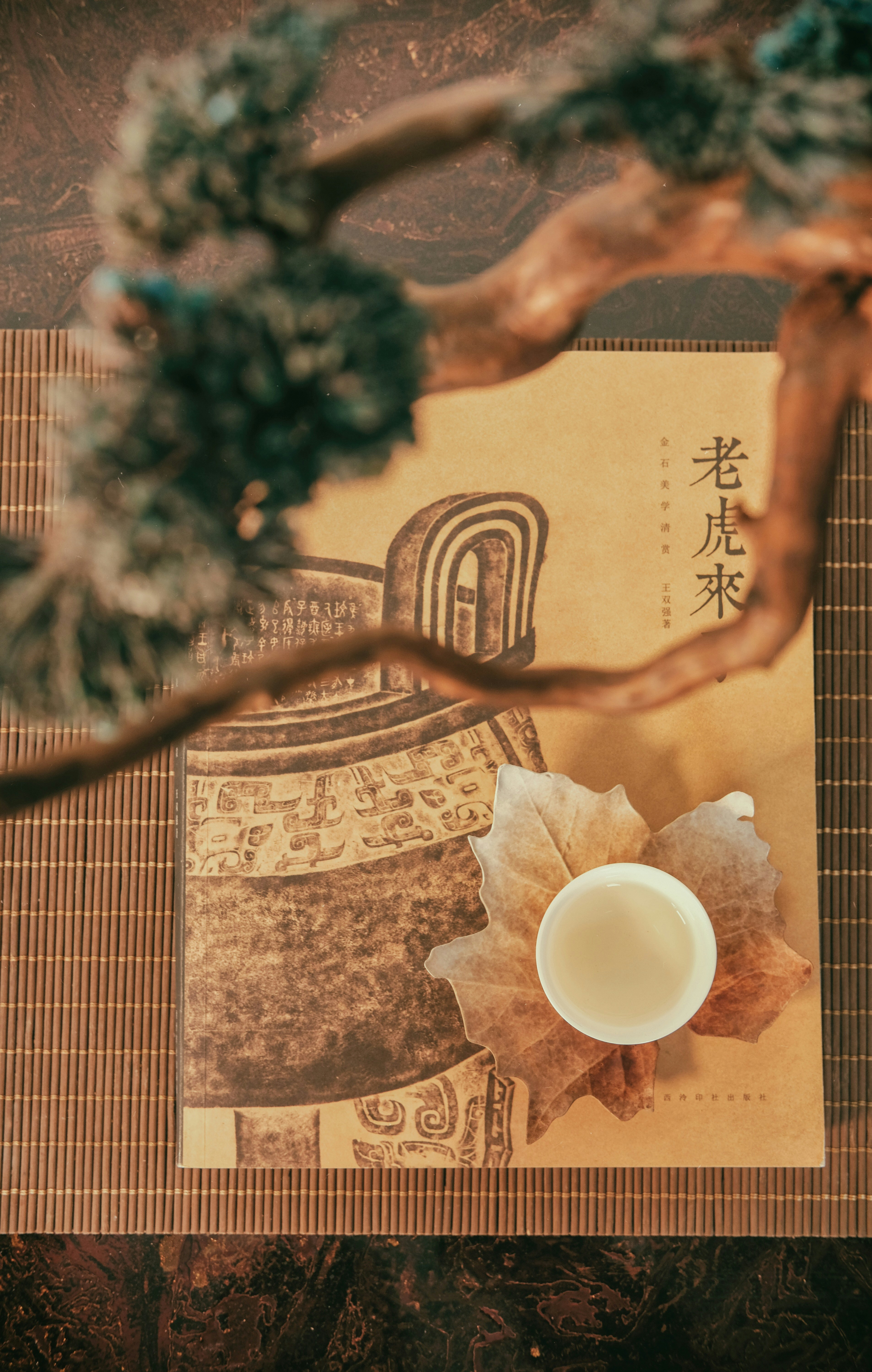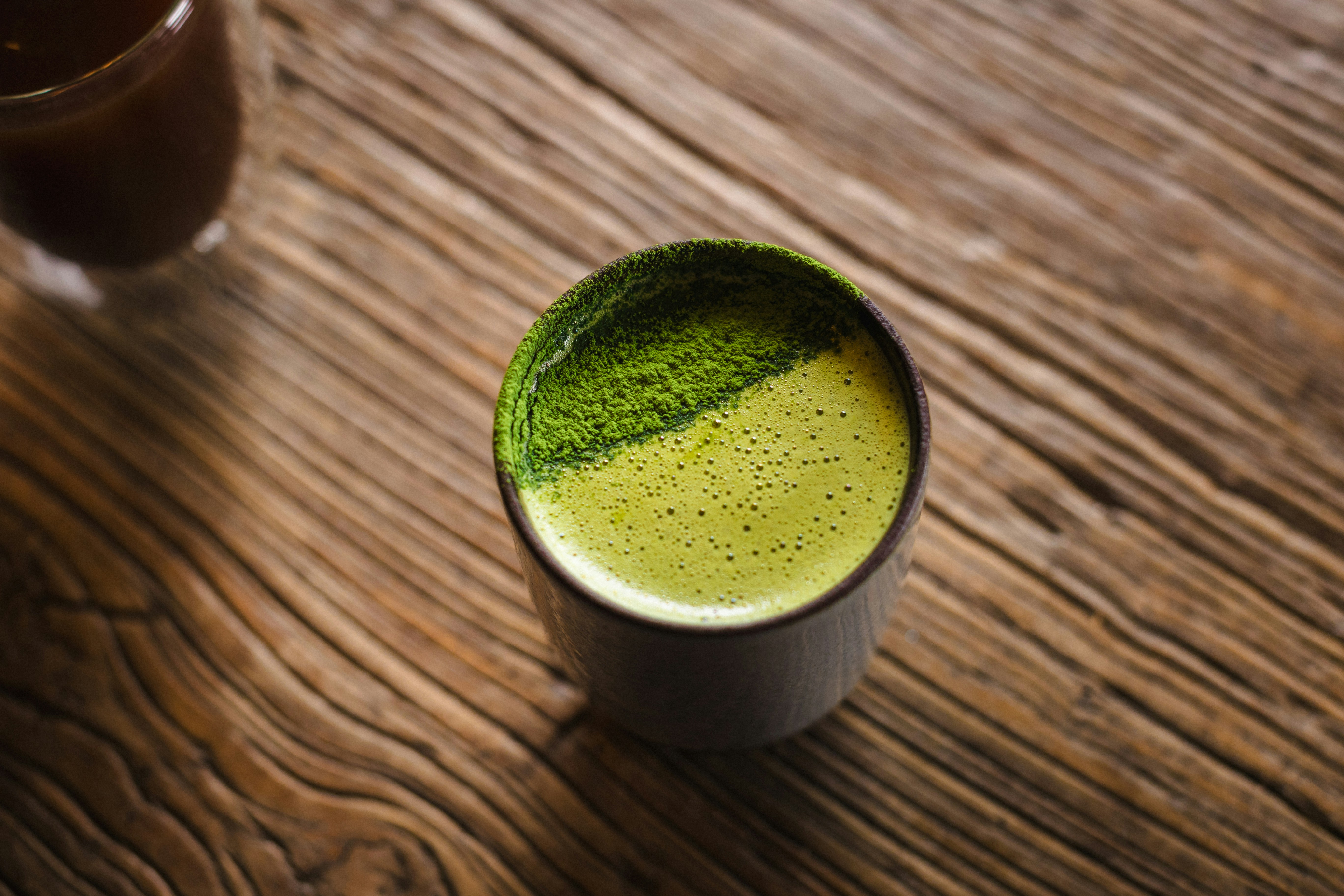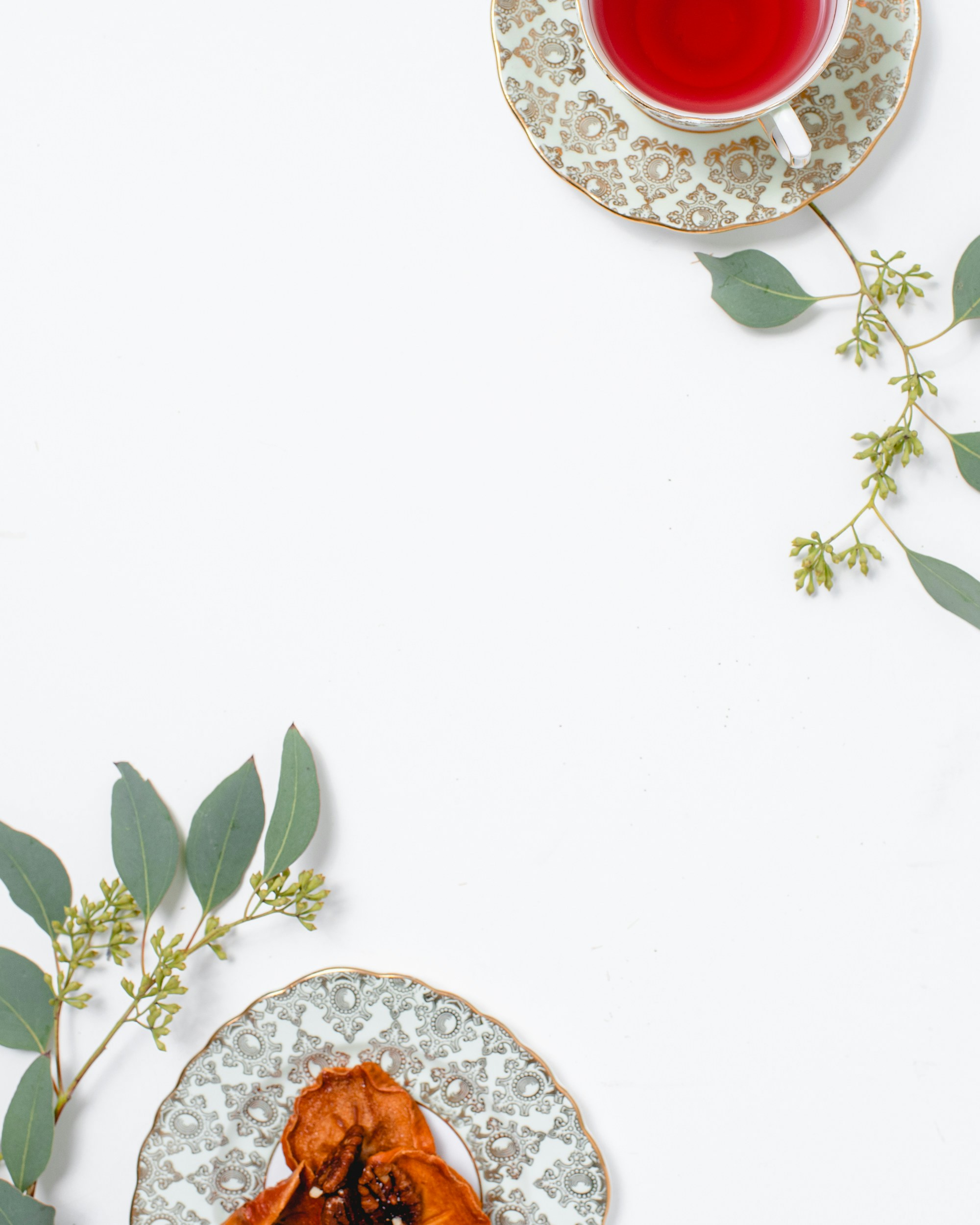Introduction to Tea and Mindfulness: A Journey to Tranquility
Tea, a beloved beverage enjoyed worldwide, transcends its delicious flavors and captivating aromas. It offers a powerful pathway to mindfulness, transforming the simple act of preparing and consuming tea into an opportunity for reflection, presence, and inner peace. Every step, from heating the water to selecting the perfect leaves, becomes a meditative practice, encouraging us to slow down and embrace the present moment with heightened awareness.
Mindful tea drinking cultivates a deeper understanding of our thoughts and emotions. The sensation of the warm cup against your hand, the delicate fragrance emanating from the leaves, and the mesmerizing transformation of color create an immersive sensory experience. Countless individuals report that incorporating tea into their daily routine has helped them navigate stressful periods, providing a grounding anchor during times of uncertainty and chaos. This deeply personal connection underscores how tea can evolve from a simple beverage into a holistic practice, nourishing both mind and spirit.
Across cultures, tea rituals symbolize connection – a connection with oneself and with others. Sharing a pot of tea with loved ones fosters meaningful interactions, allowing everyone to savor both the beverage and the shared company. These communal experiences highlight tea’s calming effects as conversations flow effortlessly in a relaxed atmosphere. The shared silence during a tea break can also be a moment of collective mindfulness, creating a space for contemplation and emotional connection.
As you explore your own tea journey, you’ll discover this ancient beverage offers a unique path to mindfulness. Each cup becomes an invitation to reflect, breathe, and be present, intertwining tea culture with the art of mindful living.
Exploring the Diverse World of Tea Varieties
Tea, steeped in history and cultural significance, encompasses a vast spectrum of varieties, each possessing unique flavors, aromas, and potential health benefits. The main categories include black, green, oolong, white, and herbal teas, each distinguished by its processing methods, taste profiles, and aromatic characteristics. Understanding these varieties enriches your tea experience and can enhance your mindfulness practice.
Fully oxidized black tea boasts a robust flavor and higher caffeine content. Popular varieties like Assam and Darjeeling stimulate both body and mind. Enjoying a cup of black tea in a serene setting becomes a meditative experience, inviting focus and clarity as you savor its rich notes.
Minimally processed green tea is celebrated for its refreshing taste and abundant health benefits. Varieties like Sencha and Matcha are renowned for their high antioxidant content. Sipping green tea creates a moment of tranquility amidst daily life’s hustle, encouraging deep breaths and mental clarity.
Partially oxidized oolong tea strikes a balance between black and green tea, offering a complex flavor profile ranging from floral to toasty. It’s often praised for its potential weight management benefits. The ritual of brewing oolong tea serves as a grounding activity, fostering mindfulness through each meticulous step.
White tea, the least processed variety, has a delicate flavor known for its subtle sweetness and health-promoting properties. Enjoying its light essence creates a calming atmosphere for reflection and meditation.
Herbal infusions, while technically not true teas, encompass a vast world of flavors derived from flowers, fruits, and herbs. Chamomile and peppermint promote relaxation and enhance focus, offering versatility for personal enjoyment within mindfulness routines.
Exploring these tea varieties invites experimentation, allowing you to discover those that resonate with you. By integrating diverse teas into your daily routine, you deepen your connection with tea, enhancing both mindfulness and overall well-being.
The Historical Tapestry of Tea in Mindfulness Practices
The practice of using tea to enhance mindfulness stretches back centuries, with deep roots in diverse cultures worldwide. In Asia, particularly in China and Japan, tea has long been considered more than just a beverage – it’s a vital element of spiritual and meditative practices. Zen Buddhist monks in Japan, for instance, incorporated tea into their meditation rituals, recognizing that caffeine can promote mental clarity and sustain focus during extended meditation sessions.
In traditional Chinese culture, tea was revered for its health benefits and mental stimulation. The renowned Taoist philosopher Lu Yu, in his seminal work “The Classic of Tea” written during the Tang Dynasty, explored the significance of tea in achieving harmony between mind, body, and spirit. Drinking tea transformed into a mindful ceremony where each step, from selecting the leaves to brewing the perfect cup, embodied conscious presence.
Tea’s historical influence extends beyond Asia. In 17th and 18th century Europe, tea became a popular social beverage, often consumed in settings that encouraged reflection and conversation. The British tradition of afternoon tea created a space conducive to mindfulness, where individuals could pause, reflect, and engage in meaningful dialogue. While this ritual has evolved over time, its essence as a moment of cultivated presence remains.
Tea’s historical role in mindfulness practices across cultures reveals its transformative power. By centering tea consumption around awareness and intention, individuals have used this beverage for centuries as a conduit for deeper mental clarity and emotional centering. This rich legacy encourages modern practitioners to embrace tea not just as a drink but as an integral part of their mindfulness journey.
Crafting Your Personal Mindful Tea Ritual: A Step-by-Step Guide
A mindful tea ritual can be a sanctuary of tranquility and self-reflection, transforming a simple act into a profound experience. Begin by selecting a peaceful space – a cozy corner in your home, a sunlit spot in your garden, or a quiet park bench. Create an ambiance that promotes peace and mindfulness, perhaps using soft cushions, a comfortable throw, or calming décor that resonates with you. The setting plays a crucial role in setting the stage for your ritual.
Choosing the right tea is equally essential. Different teas evoke various emotions and intentions. To uplift your mood, consider a vibrant green tea or a floral infusion like chamomile. For relaxation, opt for calming herbal blends such as lavender or valerian root. Personalize your selection based on your emotional state and desired outcome, imbuing your practice with intention.
As you prepare your tea, engage all your senses to deepen your mindfulness experience. Notice the colors and textures of the tea leaves. Savor the aroma released as they steep. Listen to the gentle bubbling of the water and feel its warmth against your skin. These sensory details enrich the ritual. Personal anecdotes often reveal the transformative power of such rituals, with many individuals reporting increased awareness and appreciation in their daily lives after dedicating time to mindful tea preparation. The ritual thus enhances not only the moment itself but also the overall journey of mindfulness.
Mindfulness Techniques to Enhance Your Tea Experience
Integrating mindfulness into your daily tea ritual enhances your overall experience and well-being. Breath awareness is a powerful technique. As you prepare your tea, observe your breath. Inhale deeply, drawing in the surrounding aromas and sensations, and exhale slowly, releasing distractions. Focusing on your breath cultivates presence, inviting tranquility and sharpening your awareness for the ritual ahead.
Sensory exploration is another valuable practice. Fully engage your senses as you enjoy your cup of tea. Observe the liquid’s color and clarity, lingering on the hues and appreciating the craftsmanship behind its preparation. Inhale the fragrance deeply, recognizing the complexities of the aroma and letting it awaken your senses. As you take your first sip, savor the temperature, texture, and flavors, allowing these sensations to transport you without rushing the process. In these moments of sensory engagement, the full benefits of tea unfold.
Gratitude reflections can transform your tea ritual into a profound act of self-care. Before sipping, express gratitude for the tea, the people who cultivated it, the water, and the cup holding it. Acknowledge how this routine nourishes your physical, mental, and emotional well-being. This practice fosters a positive outlook and appreciation for each moment’s simplicity. By integrating these mindfulness techniques into your tea ritual, you cultivate a deeper sense of connection and presence in your daily life.
The Health Benefits of Tea: Nurturing the Mind-Body Connection
Tea, in its various forms, has been recognized for centuries for its numerous health benefits. Recent scientific studies support this ancient wisdom, particularly regarding tea’s positive impact on mental clarity and stress reduction. These properties make tea a valuable ally for those seeking to enhance their mindfulness practices.
One key benefit is tea’s positive effect on cognitive function. Research indicates that compounds like L-theanine and caffeine can improve focus and alertness. A study in the *Journal of Psychopharmacology* showed that participants who consumed green tea reported enhanced cognitive performance and attention spans. This heightened mental clarity greatly benefits mindfulness activities like meditation and reflective thinking.
Tea’s calming effects also play a vital role in stress reduction. Herbal teas like chamomile and peppermint are known for their soothing properties and ability to lower anxiety levels. A systematic review in the *International Journal of Essential Oil Therapeutics* concluded that certain herbal teas can reduce stress and promote relaxation, creating a tranquil environment for mindfulness. Personal accounts from tea enthusiasts often emphasize how a simple tea ceremony provides a much-needed pause in their day, promoting peace and presence.
The antioxidants in tea, particularly green and black varieties, contribute to overall wellness, including improved heart health and immune function. Integrating tea into your daily routine supports physical health and fosters a holistic approach to well-being, strengthening the mind-body connection. Consistent mindful tea consumption can cultivate heightened awareness of one’s thoughts and feelings, reinforcing the principles of mindfulness.
Spiritual Applications of Tea: A Path to Inner Peace
Beyond its health benefits, tea enhances spiritual practices and rituals across cultures. Brewing and savoring tea can be a sacred ritual that fosters mindfulness and introspection. Integrating tea into daily life creates moments of quiet reflection, deepening the connection with your inner self.
The process of preparing tea – gently boiling water, carefully selecting leaves, and mindfully observing the emerging colors and aromas – becomes a meditative experience. This ritual encourages you to slow down and immerse yourself in the present moment, promoting a profoundly spiritual state of mindfulness.
In group settings, tea drinking fosters community bonding. Many cultures incorporate tea ceremonies into their social practices, viewing them as opportunities for heartfelt conversation and shared experiences. The Japanese tea ceremony, for instance, emphasizes harmony, respect, purity, and tranquility, imbuing the practice with a collective spirit and fostering deeper camaraderie.
Gratitude ceremonies around tea can amplify its spiritual significance. Expressing appreciation for the tea and the hands that cultivated it infuses the experience with purpose, connecting you with nature and its simple yet profound gifts. By viewing tea as a medium for spiritual and communal practice, you can deepen personal experiences and create lasting bonds with others.
Tea, Community, and Mindfulness: Connecting through Shared Experience
Tea has long been a bridge to connection, facilitating social gatherings, rituals, and shared moments of mindfulness. Across cultures, sharing tea goes beyond mere consumption; it embodies the essence of community and interpersonal bonds. Personal stories abound, illustrating tea’s profound impact on relationships, fostering environments where shared experiences thrive.
Consider the Japanese tea ceremony, a refined practice that emphasizes harmony, respect, purity, and tranquility. This intricate ritual creates a dedicated space where sharing tea transcends the act of drinking. Each gesture, from preparation to consumption, fosters a sense of presence, encouraging deeper engagement with each other and the present moment. This strengthens relationships, reinforcing bonds of friendship and kinship.
In Western cultures, tea gatherings among friends and family offer similar opportunities for connection. Imagine a rainy afternoon spent together around a table, warm cups in hand. These moments provide comfort and a chance for meaningful conversations, sharing thoughts and feelings in a supportive environment. As participants sip their tea, they often feel more relaxed, collectively immersed in the shared experience. Brewing and sharing tea becomes a mindful practice, focusing everyone on the here and now.
Community tea events, such as local tastings or workshops, unite people from diverse backgrounds through a shared love of tea. These gatherings foster a sense of belonging and collective mindfulness, allowing participants to connect with both the tea and each other. Ultimately, the simple act of sharing tea can create profound communal experiences, encouraging mindfulness and strengthening the human connection vital in our fast-paced world.
Conclusion: Cultivating a Daily Mindfulness Practice with Tea
Integrating mindfulness into a daily tea practice is a transformative journey, offering a unique opportunity to connect deeply with yourself and your surroundings. Preparing and savoring tea becomes a ritual rich in intention and awareness. Reflecting on the insights shared throughout this post, recall the personal stories illustrating the numerous benefits of mindful tea practices. These narratives demonstrate how the simple act of brewing tea can evolve into a profound experience of self-care and reflection.
By attuning to tea’s sensory aspects – its aroma, flavor, and warmth – the practice transcends ordinary consumption, cultivating a profound sense of presence. This ritual provides a pause in busy lives, fostering tranquility and self-awareness. Committing to this daily practice unveils deeper understanding of thoughts and emotions, leading to enhanced clarity and peace. Each cup of tea becomes a vessel for mindfulness, inviting full engagement with the present moment.
Embracing tea rituals as a daily commitment creates a balanced approach to self-care. Whether seeking solace during a hectic day or aiming to enhance focus and creativity, tea provides a versatile medium for mindfulness. As you integrate these rituals into your daily life, reflect on your experiences and share your own stories. Personal narratives enrich the tea culture community, fostering an environment where mindfulness flourishes in diverse forms. By consciously dedicating time to tea, you embark on a journey illuminated by the mindfulness it inspires, extending far beyond the beverage itself.








Leave a Reply